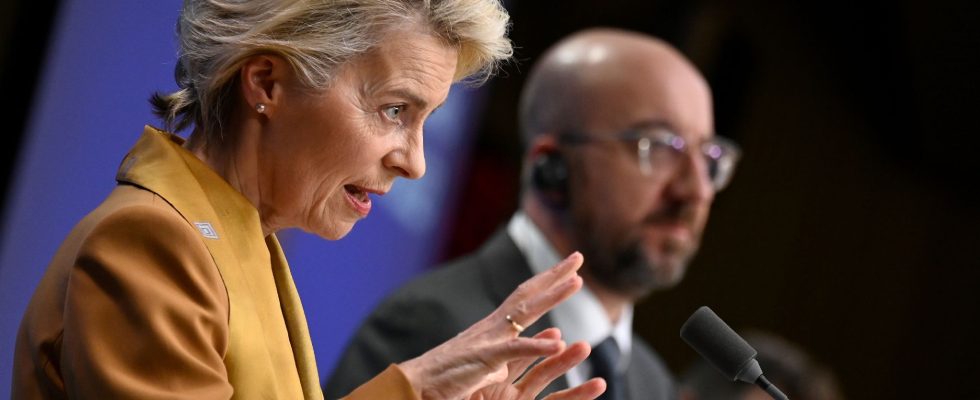After a week of psychodrama, the American economist Fiona Scott Morton, specialist in competition issues and professor at the prestigious Yale University, threw in the towel. Faced with the outcry caused by the announcement of her recruitment as Chief Economist of the Directorate-General for Competition, she rightly believes that she could not carry out her mission without benefiting from the full support of the European Union.
While Europeans are called to vote next June to elect a new Parliament, even the most fervent supporters of European construction remain perplexed, even incredulous after this episode. Anyone who still has in mind Ursula von der Leyen’s speech of November 27, 2019, before the European Parliament, on her desire to chair a “Geopolitical Commission” can only be disturbed. After the battle of the masks against the Covid, the disruptions in the supply chain of raw materials at the whim of China, the return of the war, the most important since 1945 on European soil, an energy crisis which is shaking European industry and the American offensive launched by the Inflation Reduction Act, how can a self-proclaimed “geopolitical” European Commission not see the inconsistency and political error that this attempt at appointment constitutes?
“Words, words, words”?
Everyone knows that Margrethe Vestager, the all-powerful Danish Commissioner for Competition, Vice-President of the Commission, behind this decision, is a fierce opponent of this geopolitical approach aimed at evaluating European policies through the prism of sovereignty. But that the process has come to this melodrama, even as concerns have been expressed behind the scenes for weeks on this exceptional procedure, prompts one to wonder: is it all just “words, words, words”, to quote Hamlet? Or, while 2024 will be the year of the great transfer window at the head of the European and Euro-Atlantic institutions – European Commission, European Investment Bank, NATO -, should we also see in this episode career calculations far removed from the European general interest?
One certainty, however: it will be easy for populists on all sides to vociferate, as usual, that there is “something rotten in the kingdom” of European institutions… and difficult for moderate parties to make the voice of nuance and subtlety heard. In any case, the flagship question of the campaign is posed, Shakespearean: “to be or not to be geopolitical, that is the question”. The answer has to be invented and formulated in different terms on each major subject – energy, the environment, digital technology, competitiveness, migration policy, etc.
A patent hiatus between France and Germany
In the energy field, the debate on the role of nuclear energy, which continues to strain relations between Member States, is at the heart of this existential questioning. More than the reading grid between the “pro” and the “anti”, it is much more through the weight of sovereignty that we must read the postures of each. Germany has no qualms about importing gas, no matter where it comes from, just as it believes it can build a constructive relationship with China on which it depends, like all of Europe, for its decarbonization projects. The nuclear issue is seen only through the prism of a subject of domestic policy and industrial competitiveness – there is no need to look for a pseudo-anti-French plot in its positions. Same thing for hydrogen: Germany will import what it needs and is more committed to developing a hydrogen transport network than a domestic production strategy. We must hear the spontaneous reactions of Berlin when the American plan for subsidies to green industry was announced: “These are so many additional contracts for our companies established in the United States!”
The hiatus is obvious with a France which sees in the new state of the world the correctness of its approach to sovereignty. However, it will only rally a majority of its European partners if it clarifies its approach: the current ambiguities of leaders who have a furious tendency to confuse sovereignty, autonomy and statism are not promising. Fiona Scott Morton will not go to Brussels but no French Gafam or any major technological breakthrough essential to environmental transition will arise from withdrawal or from a State which brings all subjects down to its own level, without however having the operational levers to be effective.
Cécile Maisonneuve is president of Decysive and advisor to the Energy and Climate Center of Ifri.
